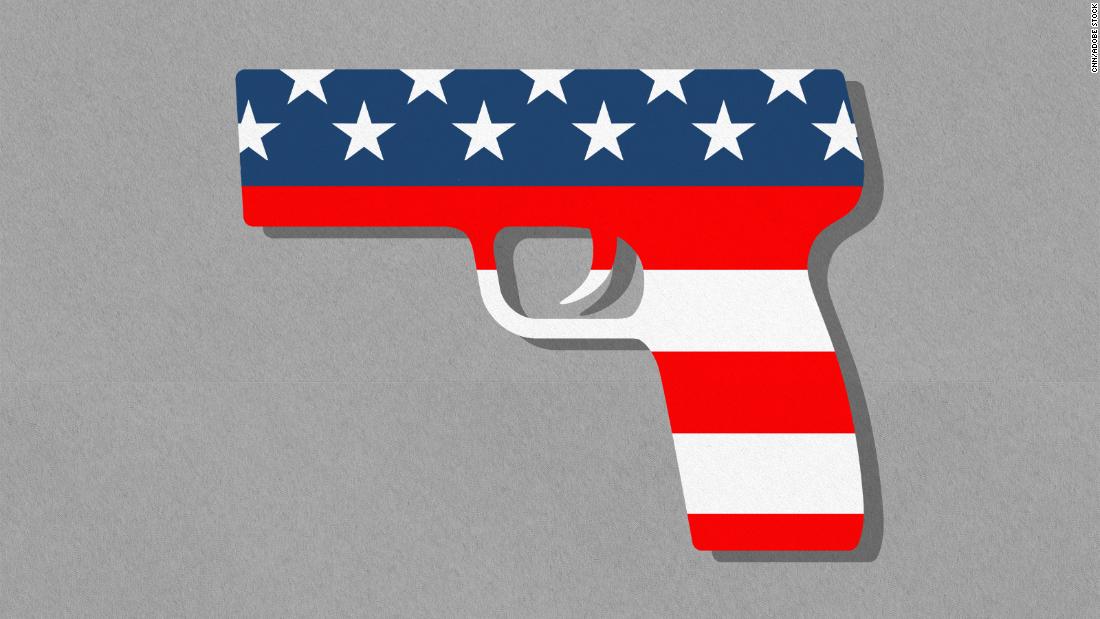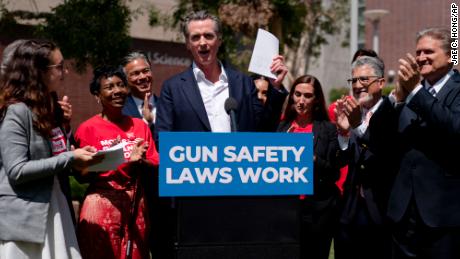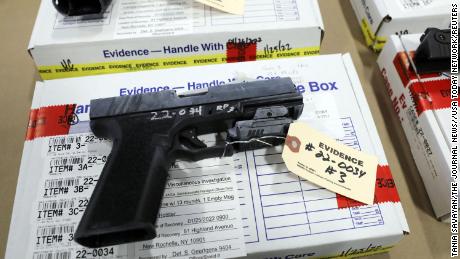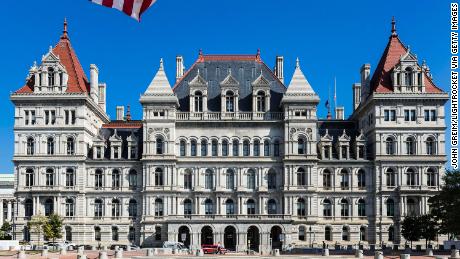
President Joe Biden in June signed into law the first major gun safety legislation passed in decades. The measure failed to ban any weapons, but it includes funding for school safety and state crisis intervention programs. Many states — including California, Delaware and New York — have also passed new laws to help curb gun violence, such as regulating untraceable ghost guns and strengthening background check systems.
Not everyone agrees that increased gun control is the answer. Some Americans advocate for their right to keep and bear arms, enshrined in the Constitution, while others argue that gun control measures save lives and do not infringe citizen rights.
“Following the passage of the first federal gun safety legislation in nearly three decades, policymakers across the country are heeding our call for action,” said Monisha Henley, senior director of State Government Affairs at Everytown for Gun Safety. “We are seeing real momentum for gun safety at the state level, but there is still far more to be done.”
Here is a summary of the state and federal laws that have been approved in 2022:
Federal legislation
“God willing, it’s going to save a lot of lives,” Biden said at the White House as he signed the bill.
The package includes $750 million to help states implement and run crisis intervention programs, which can be used to manage red flag programs, as well as for other crisis intervention programs such as mental health, drug and veteran courts.
Red flag laws, approved by the federal measure, are also known as Extreme Risk Protection Order laws. They allow courts to temporarily seize firearms from anyone believed to be a danger to themselves or others.
The legislation encourages states to include juvenile records in the National Instant Criminal Background Check System, which would provide a more comprehensive background check for people between 18 and 21 who want to buy guns.
It also requires more individuals who sell guns as primary sources of income to register as Federally Licensed Firearm Dealers, which are required to administer background checks before they sell a gun to someone.
The law bars guns from anyone convicted of a domestic violence crime who has a “continuing serious relationship of a romantic or intimate nature.” The law, however, allows those convicted of misdemeanor domestic violence crimes to restore their gun rights after five years if they haven’t committed other crimes.
California
On July 1, Newsom signed AB 2571, which prohibits the gun industry from marketing firearm-related products to minors, as well as AB 1621, which further restricts ghost guns, including the parts used to build them.
On July 12, the governor signed AB 1594, legislation that establishes a firearm industry standard of conduct to promote “safe and responsible firearm industry member practices,” the bill states.
Also included in the package is AB 2156, signed on July 21, which cracks down on the manufacture of firearms by prohibiting any person, regardless of federal licensure, from manufacturing firearms without a state license. It also prohibits unlicensed individuals from using 3D printing to manufacture any firearm or precursor part.
The last bill, signed on July 22, is SB 1327. It allows private citizens to bring civil action against anyone who manufactures, distributes, transports or imports assault weapons or ghost guns, which are banned in the state.
Colorado
The law prohibits a person from openly carrying a firearm within any polling location or central count facility.
It also bans individuals from open carrying within “100 feet of a ballot drop box or any building in which a polling location or central count facility is located,” while election activity is in progress, according to the legislation. Violations are punishable by a maximum $1,000 fine, up to 364 days imprisonment in the county jail, or both.
Delaware
The Delaware Lethal Firearms Safety Act of 2022 prohibits the manufacture, sale, offer to sell, transfer, purchase, receipt, possession or transport of assault weapons in Delaware, subject to certain exceptions, according to HB 450.
The package also includes legislation that would raise the minimum age requirement to purchase or possess a firearm from 18 to 21, ban the use of devices that convert handguns into fully automatic weapons and hold gun manufacturers and dealers “liable for reckless or negligent actions that lead to gun violence,” the bill states.
Illinois
Illinois Gov. J.B. Pritzker signed two bills that address secure storage of firearms and regulating ghost guns.
Maryland
The bill, which took effect on June 1 after bipartisan support, expands the definition of “firearm” to include an unfinished frame or receiver. It requires the Secretary of State Police to maintain a system to register firearms imprinted with serial numbers and “prohibits a person from purchasing, receiving, selling, offering to sell, or transferring an ‘unfinished frame or receiver’ or a firearm unless imprinted with specified information,” the bill states.
The law also requires the governor to allocate $150,000 in the annual state budget to fund registration proceedings.
New Jersey
The package includes legislation that would allow the state’s attorney general to sue members of the firearm industry for violations that stem from the sale or marketing of firearms, the bill states.
Also included in the package is legislation that would regulate the sale of handgun ammunition, developing a system of electronic reporting of these sales; and require training prior to the issuance of a gun purchaser identification card with a validity date of 10 years.
Another bill that was signed as part of the package mandates firearm owners who become state residents to obtain a Firearm Purchaser Identification Card and register out-of-state acquired handguns, according to the bill.
New York
Gov. Kathy Hochul signed a package of bills and an additional piece of legislation to address a wide range of gun safety issues.
Rhode Island
One of the bills also changes the definition of “rifle” and “shotgun” consistent with federal law.
Vermont
The governor vetoed a similar bill, S.30, in February that would have closed the “Charleston Loophole,” which allows gun purchases to move forward by default after three days even if a background check has not been completed.
The new law, S.4, addresses the policy by extending the time period to seven days for the federal government to complete a background check before an individual can purchase a firearm. It also strengthens protections for victims of domestic violence, according to the bill.
Washington
Washington Gov. Jay Inslee signed three gun safety bills into law on March 23.


